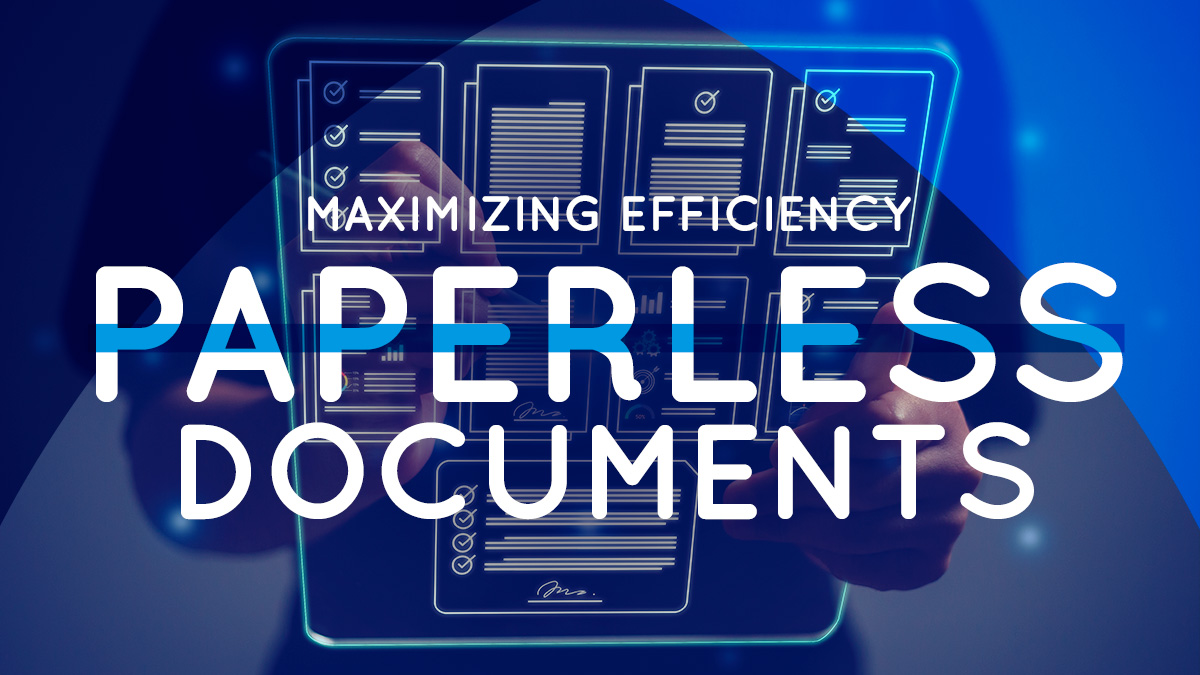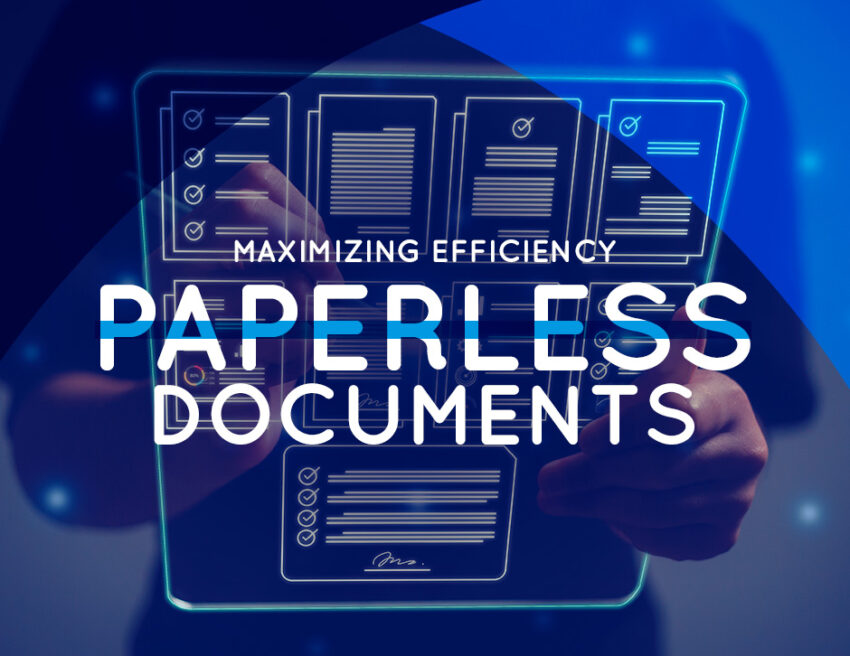Today’s blog is all about the broader scope of document digitization within international logistics and freight forwarding industry and the entire supply chain ecosystem. Keep reading to remain abreast of the latest advancements in document digitization, recognizing the prevalent trend of integrating existing systems within transportation and logistics. Our focus is on delivering essential insights to facilitate a shift in perspective regarding document flow. Without delay, let us explore together how digital document management can enhance the business capabilities of independent freight forwarders.

The importance of digitization of documents in the freight forwarding industry
The present landscape of trade documentation encompasses numerous documents and processes, resulting in a manual, time-consuming, and resource-intensive endeavor for all involved stakeholders. Documentation for a single shipment often entails the exchange of up to 50 sheets of paper among approximately 30 different parties. Moreover, a simple process like sending a door to door quotation could involve a few days of manual labour leaving a long paper trail.
Additionally, the bill of lading stands out as a crucial document issued by carriers to acknowledge receipt of cargo from the shipper. According to McKinsey analysis, the bill of lading significantly elevates the total trade documentation costs, ranging from 10 to 30 percent. While digital standards have revolutionized automated trade systems in sectors such as banking and aviation, the shipping industry remains comparatively stagnant, reminiscent of practices from centuries past.
Additionally, the slightest error in manual paperwork can take a serious proportion and result in delayed or cancelled cargo. The use of paper is becoming irrelevant in this industry, especially in this era of digitization. Manual inventory takes up a lot of the valuable time of the companies and necessitates an additional workforce. Automated platforms allow companies to save a lot of their precious time, eliminate inaccuracies, reallocate resources elsewhere, and keep pace with the changes in the freight forwarding industry.
The benefits of digitalizing paperwork in freight forwarding industry
Transitioning from traditional paper documents to electronic equivalents offers freight forwarding companiethe opportunity to streamline operations, reduce costs, and improve efficiency significantly. This shift can provide substantial benefits for both businesses and consumers, including:
Increased Speed
Electronic documents can be processed and transmitted much faster than their paper counterparts, leading to shorter processing times and quicker transactions.
Cost savings Eliminating the need for paper, printing, storage, and postage can result in significant cost savings for businesses. Moreover, electronic documents reduce the risk of errors, thereby minimizing associated expenses. For example, according to a recent McKinsey study, the implementation of an electronic bill of lading has the potential to generate annual cost savings of 6.5 billion US dollars for all stakeholders involved. Embracing digitalization offers businesses the opportunity to decrease expenditures associated with printing, postage, and storage. Additionally, it can alleviate the need for labor-intensive data entry and processing, allowing employees to redirect their focus towards higher-level strategic responsibilities.
Improved accessibility and visibility
Electronic documents can be accessed from anywhere with an internet connection, enhancing accessibility for employees, partners, and customers and all other stakeholders in the freight forwarding industry. This accessibility facilitates faster decision-making and collaboration. Additionally, digitalization provides businesses with the advantage of real-time visibility into their shipments, enabling them to track their journey from inception to completion. This heightened visibility empowers freight forwarding companies to promptly identify and address potential issues that may arise throughout the transportation process, thereby enhancing operational efficiency. By leveraging real-time data, freight forwarders can make informed decisions, optimize routes, and mitigate delays, ultimately improving customer satisfaction and reducing costs. Additionally, the ability to closely monitor shipments fosters transparency and accountability within the supply chain, facilitating smoother operations and fostering stronger relationships with customers and partners.
Enhanced security
Electronic documents can be encrypted and protected with access controls, reducing the risk of unauthorized access or loss compared to physical paper documents. This ensures sensitive information remains secure.
Environmental sustainability
Transitioning to electronic documents reduces paper consumption, leading to conservation of natural resources and a smaller environmental footprint. It aligns with corporate sustainability goals and demonstrates commitment to environmental stewardship.
Better customer experience
Digitized documents enable faster processing and delivery of information to customers, enhancing their overall experience. This can lead to increased satisfaction and loyalty.
Scalability and flexibility
Electronic document systems are highly scalable and adaptable to changing business needs. They can easily accommodate growing volumes of data and transactions, supporting business growth and expansion.
Overall, the transition to electronic documents represents a strategic investment that can drive operational efficiency, cost savings, and improved customer satisfaction, ultimately contributing to the long-term success of businesses.
How the best freight forwarders network is helping members to digitize a core process
Logistics companies are acutely aware of the imperative to invest in digitization and technology. Such investments not only enable adaptation to customers’ evolving needs but also enhance operational efficiency and bolster profits. However, for many companies in the freight forwarding industry, this transformation presents significant challenges. Investing in technology necessitates adjustments to annual budgets and comprehensive staff training initiatives. Therefore, it is crucial to be affiliated with one of the best logistics networks capable of offering a robust digital strategy to freight forwarders embarking on this transformative journey. Providing members with the appropriate tools to excel in the digitization process stands as a cornerstone strategy within Conqueror Freight Network. Conqueror Freight Network, one of the best freight forwarders networks of our time is allowing its members to take the first step towards digitization by offering FreightViewer– a free member-exclusive online freight quote generation software.
A bit about FreightViewer: Conqueror’s member-exclusive online freight quote generation platform
This free and member-exclusive tool enables users to automatize the sales process, enhance visibility and improve customer services. Additionally, it provides the members with a standardized platform to send and request quotes, share documents, and even exchange rates with non-member companies.
FreightViewer facilitates the establishment of a digital back office. By uploading rates into the system, users can generate quotes within seconds, compare rates across various carriers, and filter based on multiple attributes to obtain the most precise quotations. Additionally, this system not only accelerates the quoting process but also creates a vast open showcase for clients, accessible 24/7. In essence, it provides a user-friendly website through which clients can directly engage with your services at any time, on any day.


